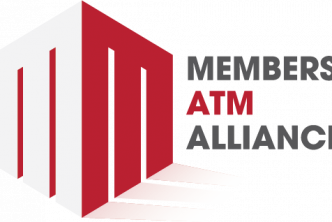Cheryl Lawson, EVP-Compliance Review for JMFA writes an article, “Does your overdraft program leave you open to a lawsuit?” studying issues with credit unions’ existing programs.
What’s the difference between a service-oriented, fully disclosed overdraft program that is clearly and responsibly presented to account holders … and one that is used solely to earn revenue, at all costs? In the case of TCF Financial Corp., it’s $30 million dollars and a major blow to its reputation.
You may have heard that TCF recently agreed to the large payment to resolve accusations that it misled its account holders about its overdraft program.
But here’s the interesting part: the bank did not technically break any compliance rules with their overdraft services. They did admit, however, that from 2010 to 2013, their account holders may not have fully understood their options for accepting or rejecting the service.
Misleading Instead of Serving
According to reports, TCF employed questionable tactics to get account holders to sign up for its overdraft program. The company allegedly asked new customers to accept the overdraft program at the same time they were accepting other mandatory terms and conditions related to opening an account.
Bank employees also reportedly asked account holders if they wanted their “TCF Check Card to continue to work as it does today?” A reply of “yes” was considered an opt-in.
So, technically, an opt-in was obtained … but certainly not ethically.
This unbalanced presentation of choices (not aided at all by the former TCF National Bank CEO naming his pleasure boat Overdraft) landed the bank in a whole lot of hot water.
Think it can’t happen to your bank or credit union? Without a fully disclosed overdraft program, it can.
Honesty — Still the Best Policy
There is a simple path away from trouble like what TCF experienced, though. For overdraft protection programs that rely on loopholes and sales tactics — or even just passive or uninformed opt-ins — to succeed, it’s essential to start looking at things from a service perspective.
Treat your account holders respectfully and responsibly by fully disclosing your overdraft program, explaining the terms and conditions thoroughly instead of going for the quick opt in. They’ll know the service is there if they need it, and they’ll use it if they so choose. Isn’t that better than surprising them with fees they didn’t realize they were agreeing to?
Being open and honest from the start will serve you well in the eyes of your account holders.
Peace of Mind — It Can Be Guaranteed
On some level, TCF probably worked hard to make sure they stayed in compliance, despite the account holder confusion. Can you be sure that yours will perform well even if your examiner or unhappy account holders put your practices under a spotlight?
Looking to an expert in overdraft services can help alleviate the worry. It’s important to find a partner that will provide the best possible overdraft option and experience to your account holders, while still increasing your non-interest income.
JMFA OVERDRAFT PRIVILEGE offers a 100 percent compliance guarantee, providing regulatory updates to you and your program as needed. Plus, JMFA clients have access to on-site training and continuing education opportunities to help them get the most out of the program — responsibly.
All of these things combined help ensure that your institution is following best practices and regulations at all times. And that peace of mind means you’re always doing right by your account holders when it comes to overdraft services.





